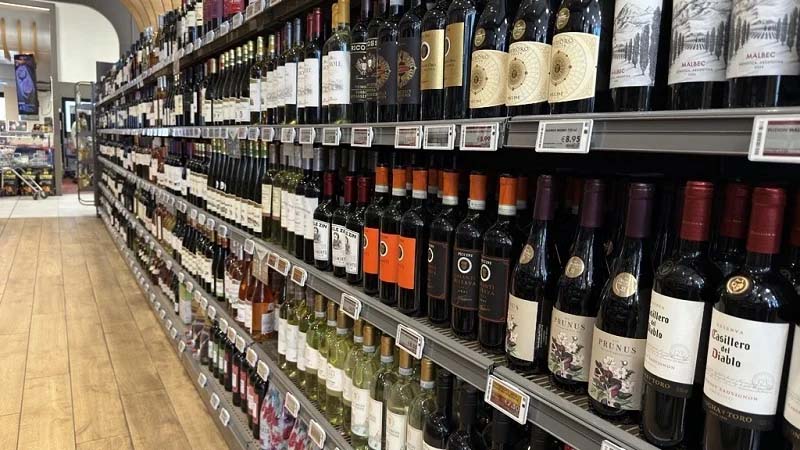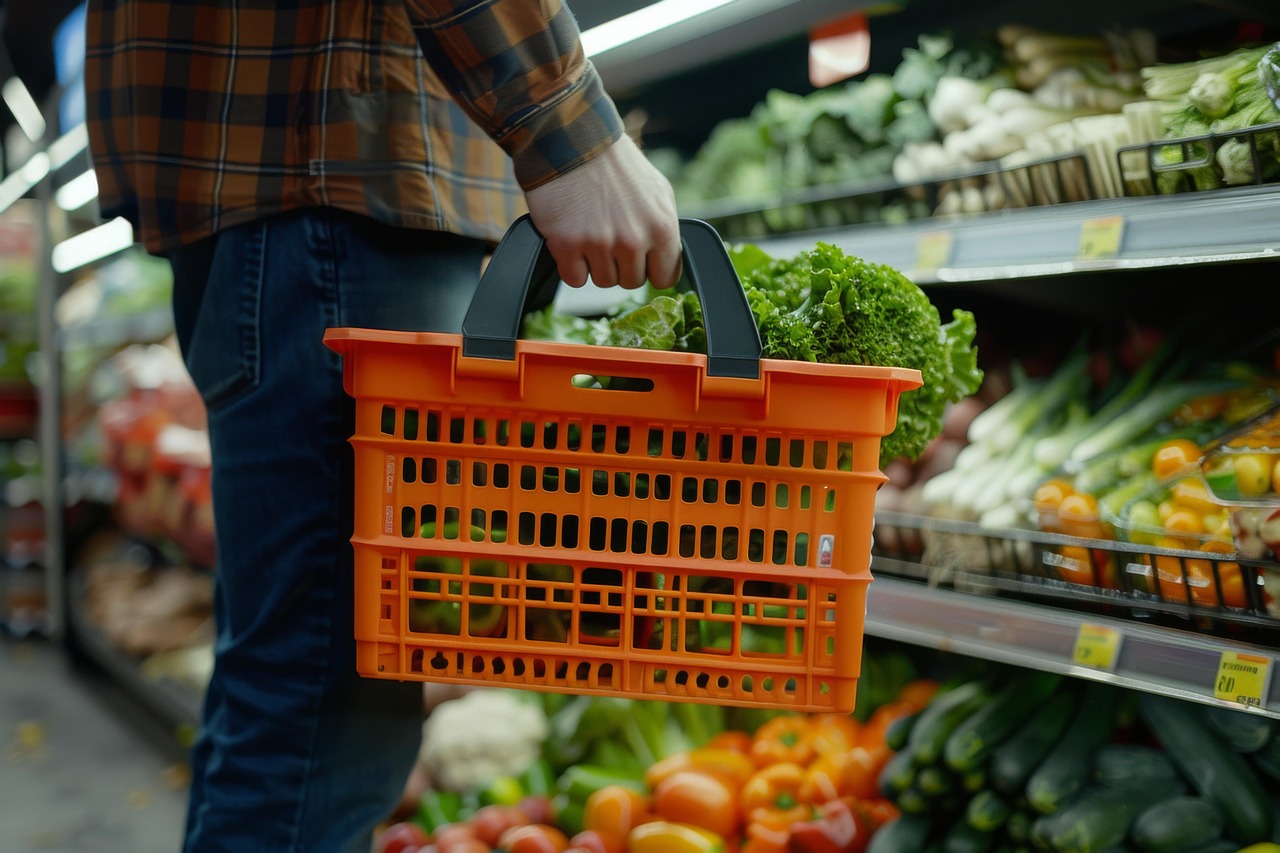Cyprus is just getting used to self-checkouts and now the pricing goes all techy
Several Cypriot supermarkets have recently proceeded with the introduction of electronic shelf labels (ESL’s), replacing paper price tags as most of us know them.
The supermarkets say the move is part of continuous upgrades to enhance the modern-day shopping experience, ultimately benefitting both consumers, staff and the environment.
But is that really the case? Before giving in to the tech hype – or the hysteria of those who fear it might pave the way for hidden price increases – it’s worth taking a closer look at what the introduction of these digital price tags actually means in practice.
Electronic shelf labels, also referred to as electronic price tags, are small digital displays attached to store shelves that show product prices and information.
They are connected to the supermarket’s central system and allow prices to be updated electronically and instantly across all shelves, which allows for making promotions, discounts and corrections far more efficient and spare supermarket staff the work of manually replacing paper tags.
However, some worry this same ability could be used to change prices, making it harder for consumers to keep track.
ESLs eliminate the need for paper and are seen as a way to reduce waste. They often run on small batteries, which of course come with their own environmental drawbacks, however, currently new battery less ESL models are emerging.
“Prices are updated automatically, and offers are applied with absolute accuracy. [The introduction of ESLs] significantly enhances the customers’ shopping experience, increases our staff’s productivity and saves time and resources, while offering an innovative shopping experience,” retail giant Alphamega said, announcing their switch to ESLs in all their markets, in late August.
Alphamega IT project manager, George Touloupis, added that the introduction of ESLs, also allowed the chain to reduce its paper usage, helping to minimise its overall environmental footprint.
Touloupis also highlighted another important advantage for the supermarket chain, currently operating 19 stores all over the island.
“The implementation of the ‘Electronic Shelf Labels’ project reinforces the technological superiority of Alphamega Hypermarkets and upgrades our daily operations,” he said.
Discounter chain Lidl, which has also banned paper tags from its stores, received three Cyprus Retail and Sales Awards for its introduction of ESLs in 2024.
But the introduction of ESLs stretches far beyond supermarkets.
Retail stores like Public, JD Sports and H&M have already implemented electronic shelf labels, head of the Cyprus Consumers’ Association Marios Droushiotis, tells the Cyprus Mail.
However, he adds that the number of supermarkets in Cyprus that have introduced EPTs still remains small.
“[ESLs] are useful tool. However, because it requires specialised technology and additional costs, it is difficult to implement it by all Cypriot businesses,” he adds.
For now, the choice of whether or not to introduce electronic shelf tags, remains up to the supermarkets, and Droushiotis emphasises that this would likely only change if the EU decides to push a respective legislation at some point in the future.
So what’s in it for consumers?
“I don’t think this [the introduction of ESLs] affects the increase in prices. On the contrary, I believe it helps the consumer to know at any time the market prices and this helps in healthy competition,” Droushiotis says.
He adds that currently, the only disadvantage he could think of was the “relative insecurity” that he says existed in all electronic systems, which are vulnerable to electronic attacks and data falsification.
“Consumers should pay attention to the price recorded electronically, any hidden charges, the accurate description of the product and most importantly, the final price they will pay at the checkout,” he says.
In regard to the e-kalathi app, launched by the government to help consumers compare prices of essential goods across major supermarkets in July, Droushiotis says the ESLs would not have any significant effect on the app.
“The prices on the e-kalathi app are already online and can be changed immediately and at any time. I don’t think it will affect the e-kalathi app to any significant extent,” he says.

Retail has long been digitalised
In a time when society has long moved to emails over letters and card instead of cash payments, paper has long been replaced by more practical alternatives. Therefore, pushing forward with the digitalisation in retail seems only natural.
Following the introduction of apps offering discounts, self-checkout counters, or radio frequency identification (RFID), which allows for the automated scanning of hundreds of items at once – if you’ve ever seen an employee waving a strange-looking remote standing between shelves and wondered what they’re doing, that’s RFID – ESLs are yet another step in that direction.
What supermarkets describe as an “increase in staff productivity” that comes hand in hand with automation, also comes with the question whether fewer people will eventually be needed to do the same work.
The US Bureau of Labour Statistics in 2023 warned that technological upgrades in the retail sector, including as self-checkout and online sales, have been a main driver behind a decline in cashier jobs in the US – 1.2 million 2023, compared to 1.4 million in 2019 – with a further ten per cent drop expected by 2033.
So, while the introduction of the new shelf labels clearly already makes a notable difference for supermarket staff, it remains to be seen to which extent Cypriot consumers will benefit from the introduction of the new shelf labels in the long run.






Click here to change your cookie preferences